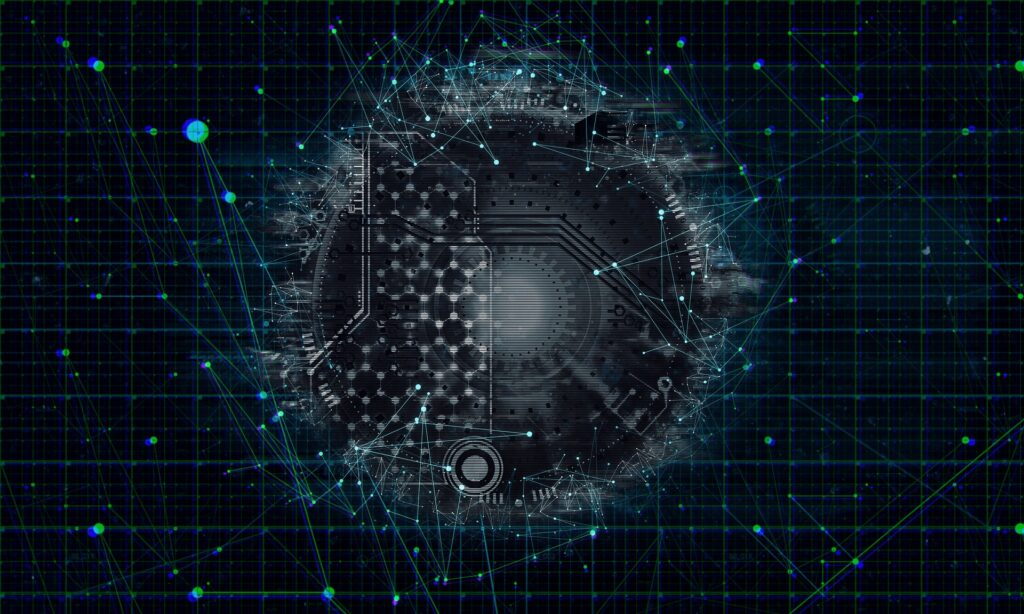
Members Involved
- Nithin Raveendran
- Narayanan Rengaswamy
- Bane Vasic
- David Declercq
- Francisco Garcia Herrero
- Ankur Raina
Project Outline
We are developing novel quantum fault tolerant decoding algorithms for finite length quantum LDPC decoders beyond belief propagation (BP), leveraging knowledge of trapping sets to surpass BP, not only in decoding error performance but also in complexity. We also are investigating novel iterative decoders for quantum codes realized solely by quantum circuits and developing machine learning algorithms for learning such quantum decoders. Theoretical techniques to analyze the decoders to derive explicit conditions on the graph that guarantees performance in terms of error correction capability are also pursued.
Quantum low-density parity check (QLDPC) codes are proven to have asymptotically nonzero coding rates and are an important cog in realizing scalable, fault tolerant quantum computation. However, traditional belief propagation (BP) decoding algorithms perform poorly with loopy Tanner graphs and symmetric degenerate errors, which is a big hindrance in achieving high performance in quantum computing and communications. Furthermore, most existing work on decoding QLDPC codes rely on classical BP decoding where one computes marginals of the noisy code word state on the “factor-graph” defined by stabilizer generators. The goal of the proposed research is to develop efficient and fault-tolerant decoders for finite-length QLDPC codes leveraging on our prior work on harmful configurations in factor-graph called trapping sets, identifying quantum equivalent of trapping sets, and utilizing them to improve fault-tolerant thresholds, and ultimately developing improved iterative decoders and more advanced decoding algorithms that employ classical-quantum messages, to harness the full potential of QLDPC codes.
Project Media
Talks
N. Raveendran, F. Rozpedek, N. Rengaswamy, A. Raina, L. Jiang, and B. Vasi ́c, “Finite rate QLDPC-GKP coding scheme that surpasses the CSS Hamming bound,” in Invited Talk at QCDA Seminar, Jan. 10 2022.
N. Raveendran and B. Vasi ́c, “Trapping sets of quantum LDPC codes,” in Invited Talk at Liang Group Seminar Series, Pritzker School of Molecular Engineering, University of Chicago, Nov. 15 2021.
B. Vasic and N. Raveendran, “Trapping sets of quantum LDPC codes,” in ACCESS – Algebraic Coding and Cryptography on the East coast Seminar Series Online Event, Clemson University, Nov. 16 2021.
N. Raveendran and B. Vasic, “Trapping set analysis of finite-length quantum LDPC codes,” in 2021 IEEE International Symposium on Information Theory (ISIT), July 2021, pp. 1564–1569.
B. Vasic and N. Raveendran, “Trapping sets of quantum LDPC codes,” in Duke University Kavli Quantum Coffee Hour. Durham, NC: Duke University, February 2021
Publications
N. Raveendran, N. Rengaswamy, F. Rozpedek, A. Raina, L. Jiang, and B. Vasi ́c, “Finite rate QLDPC-GKP coding scheme that surpasses the CSS Hamming bound,” arXiv preprint arXiv:2111.07029, 2021, submitted to Quantum. Available: https://arxiv.org/abs/2111.07029
N. Raveendran and B. Vasic, “Trapping Sets of Quantum LDPC Codes,” Quantum, vol. 5, p. 562, Oct. 2021. [Online]. Available: https://doi.org/10.22331/q-2021-10-14-562
J. V. Coquillat, F. G. Herrero, N. Raveendran, and B. Vasi c, “Syndrome-based min-sum vs OSD-0 decoders: FPGA implementation and analysis for quantum LDPC codes,” IEEE Access, vol. 9, pp. 138 734–138 743, October 2021.